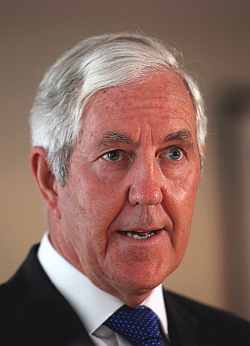Former ICC Anti-Corruption Unit chief Paul Condon has made a sensational claim that every international team was involved in match-fixing at some stage in the 1990s.
Condon, who was founding head of the ICC's ACSU, said match fixing was not just restricted to Indian sub-continent.
"In the late 1990s, Test and World Cup matches were being routinely fixed. From the late Eighties certainly through to 1999-2000 there were a number of teams involved in fixing, and certainly more than the Indian sub-continent teams were involved," the 64-year-old Condon told Evening Standard.
"Every international team, at some stage, had someone doing some funny stuff," he added.
Condon said the players of that era perhaps had full knowledge of what's happening around but chose to keep mum.
 "A whole generation of cricketers playing in the late 1990s must've known what was going on and did nothing. When they look back on their careers, a bit of shame must creep in. The last fixes of whole matches, or even series, were probably in 2001 before we'd really got the unit going."
"A whole generation of cricketers playing in the late 1990s must've known what was going on and did nothing. When they look back on their careers, a bit of shame must creep in. The last fixes of whole matches, or even series, were probably in 2001 before we'd really got the unit going."
Condon also claimed that it all began in United Kingdom with County teams fixing friendly leagues but not for money.
"It started with friendly fixes in the UK in the old Sunday leagues. Over a weekend you'd have a county side playing their county match and then a Sunday league match and there would be friendly fixes, not for money but for manipulating places in the leagues.
"If you're Team A and have a higher position in the Sunday league and I'm captain of Team B and my team have no chance in the Sunday league, I might do a deal to ensure you got maximum points in your Sunday league match. You would reciprocate in the County Championships. These friendly fixes quickly became more sinister, probably in the Eighties."
In 2000, ICC established Anti-Corruption Unit when the then South African captain Hansie Cornje was found involved in rigging of the games
Condon also said that the menace of the spot-fixing might have started during the 2003 World Cup as there were instances which suggested it.
"In one group match during a couple of overs two guys suddenly went from scoring runs in double figures to just ones and twos. For spot fixing, that's all you need. From 2003 spot fixing became the name of the game," he said.









